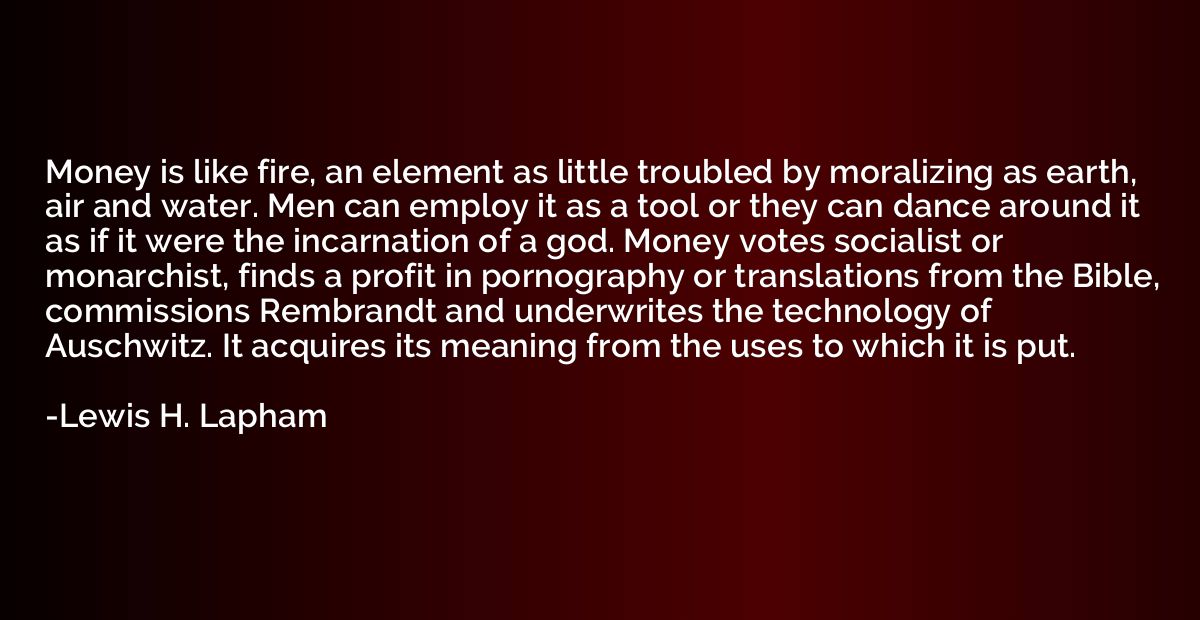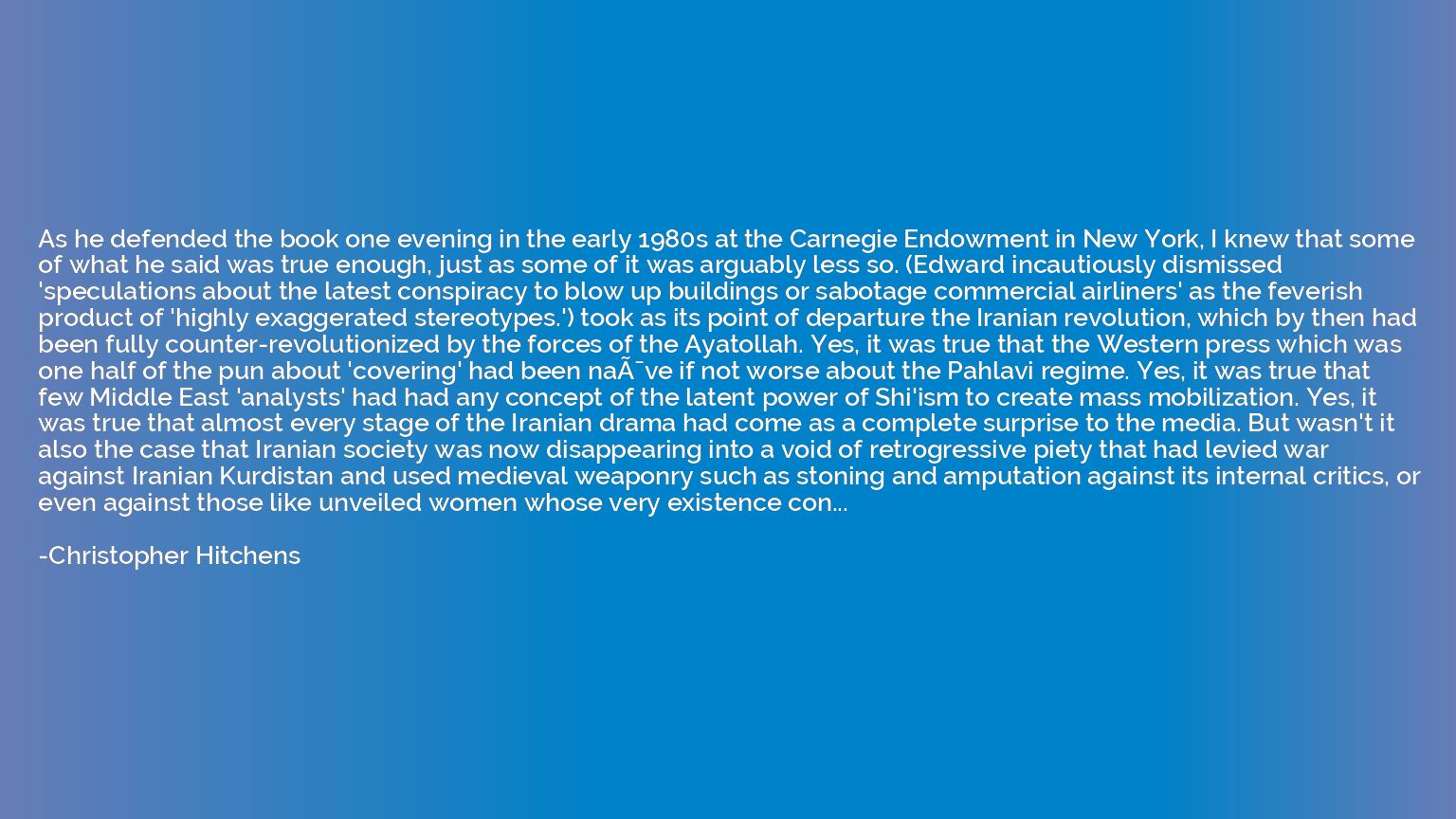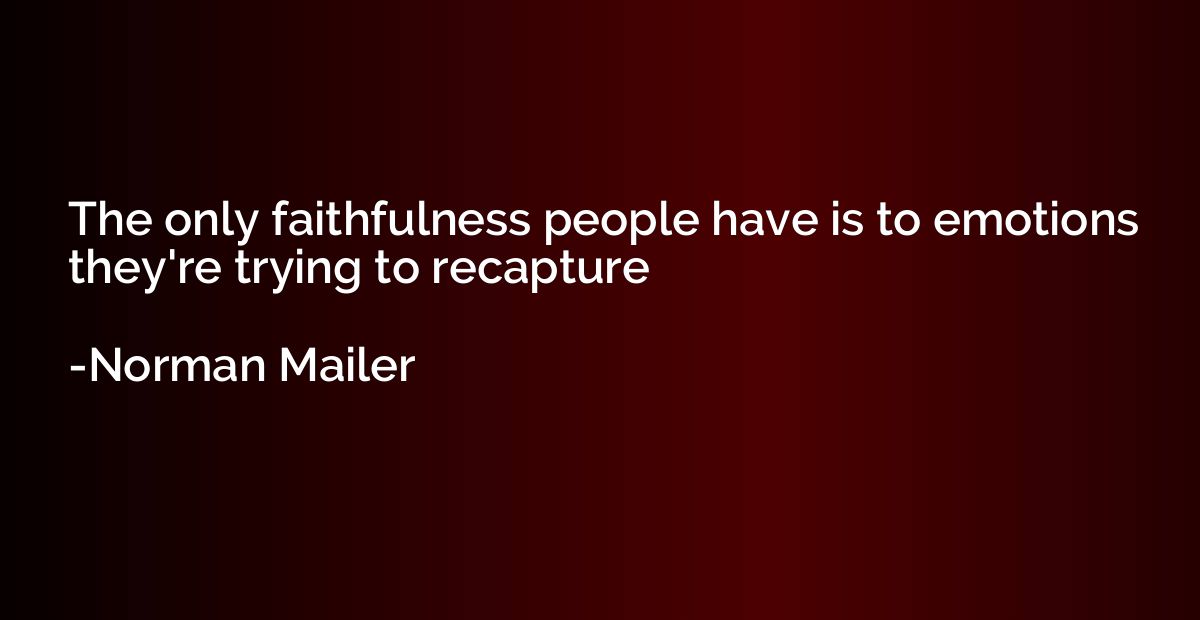Quote by Lewis H. Lapham
Money is like fire, an element as little troubled by moralizing as earth, air and water. Men can employ it as a tool or they can dance around it as if it were the incarnation of a god. Money votes socialist or monarchist, finds a profit in pornography or translations from the Bible, commissions Rembrandt and underwrites the technology of Auschwitz. It acquires its meaning from the uses to which it is put.

Summary
This quote highlights the neutral nature of money and emphasizes the idea that it is solely the actions and intentions of humans that give it meaning. Money can be utilitarian, serving as a tool for various purposes, or it can be revered and idolized. It illustrates that money does not have any inherent moral qualities, but it reflects the values and choices of those who possess it. Whether it is used for noble expressions of art or darker endeavors, money derives its significance from the ways in which it is utilized.














